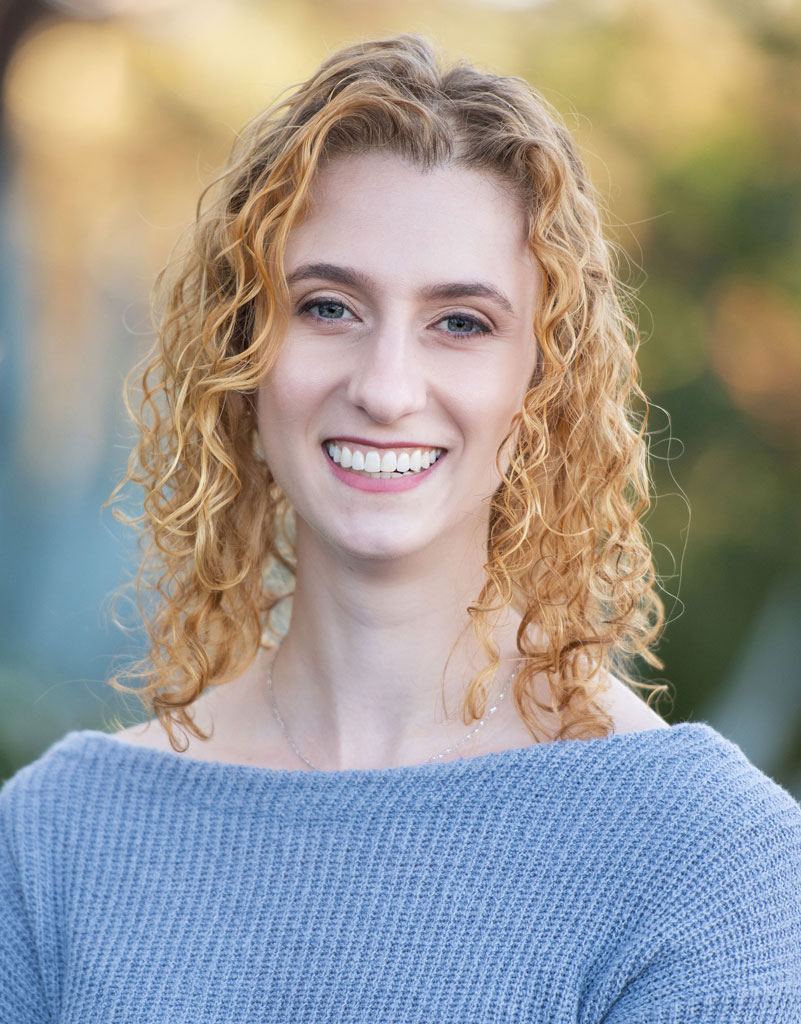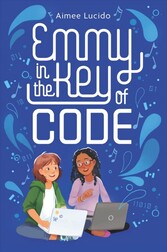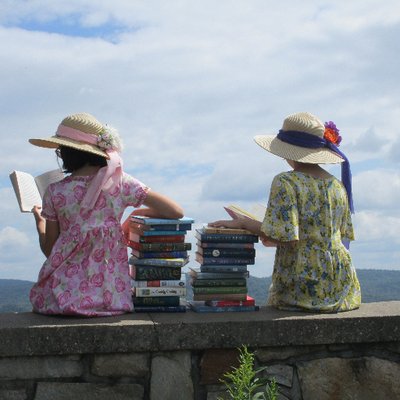| Interview by Piranha T. and Super Kitty Aimee Lucido is the author of the award-winning novel Emmy in the Key of Code (which received a 2020 Rapunzel Reads Book of the Year award) and the upcoming Recipe for Disaster, which will be released in Fall 2021. Emmy in the Key of Code follows the story of Emmy’s journey as she discovers coding as well as her old passion for music and navigates new friendships and a new school. We love it for its sympathetic characters and beautiful free verse, and we were thrilled to interview her for this month’s feature! RapunzelReads: What inspired you to write Emmy in the Key of Code, particularly the combination of elements of music and coding? Aimee Lucido: I had the idea to write Emmy in the Key of Code in a combination of poetry, music, and code, when I was reading a novel in verse by Andrea Davis Pinkney called The Red Pencil. The Red Pencil is a beautiful novel in verse that has absolutely nothing to do with computers, and yet somehow, while I was reading the book, I was struck by how similar Pinkney's verse was to the coding language Python. Both use colons, newlines, and tabs very intentionally in order to convey meaning, and that's when I realized that I could potentially tell | Author photo credit: Nina Pomeroy |
RR: What was your favorite part about writing Emmy in the Key of Code?
AL: My favorite part of writing Emmy in the Key of Code was coming up with all the music metaphors! I have always loved music. I started playing piano at six, began singing in middle school, and dove into the more mathematical world of music theory in college. And after being around music for so long, my brain began to think in musical terms. That's why music pops up so much in my work, I think, because I can't escape it. But with Emmy I was able to really dive deep into the world of music. I could tell readers that Emmy felt like a "diminished fifth" instead simply that she felt left out. I could call Abigail's friends the "string quartet" and throw in some facts about atonal music, just for fun. Writing the book felt like speaking in a secret language, and knowing that someday people would read my book and maybe laugh at some of my jokes made them all the more fun to write.
RR: In addition to Emmy in the Key of Code’s beautiful free verse, pieces of the book are written in a prose/code format, which manages to be accessible to both seasoned coders and those who know little of the subject, and perfectly relays the layers of the story. What inspired you to write in this style?
AL: People tend to think of code and poetry as exact opposites. Poetry is often considered flowery and frivolous, while code is often considered robotic and practical. But I think the two formats have more in common than people think: they're both formats that can be intimidating to people who are inexperienced with them, they both ascribe meaning to every single bit of punctuation and whitespace, and they are both built out of language. I thought writing a story using code could show people that code can be beautiful and poetic, and that poetry can be simple and practical. Plus, if I did my job right, I could tell a story that anybody could understand, and also teach a bit of coding in the process.
RR: Do you have any tips for an aspiring writer?
AL: My biggest tip is that you're not an “aspiring” writer if you're writing. You're just a writer! To put it a little more bluntly: WRITE! Whenever I'm feeling something I don't understand, I write about it. I encourage you to do the same!
RR: Emmy is a deep and multilayered protagonist who we couldn’t help but fall in love with. What were the best (and hardest) parts of writing about her?
AL: Well, first of all, I'm so glad you felt this way about Emmy. I actually find it super hard to write characters people root for because in early drafts, my characters tend to start out too passive. With Emmy, I originally had the book starting six months after where it begins now, with Emmy already halfway through her year as the new kid, and still with no friends. It made Emmy come off WAY too sad. I had a bit of a breakthrough when I pulled the book back to start on the first day of school, and another one when I wrote the "attempted duets" poems. In them, Emmy is trying to make friends, and even though she's failing, the reader (hopefully) roots for her to succeed because at least she's trying. That's a lot more fun to read than someone who has no friends and is just kinda sad about it.
RR: What books inspired you when you were growing up?
AL: When I was little I loved fantasy. My favorites were The Golden Compass, Matilda, and Harry Potter. Now I tend to gravitate more towards contemporary stories, but I won't say no to a book with a tiny bit of magic: A Long Way Down, All The Impossible Things, Like Water For Chocolate, Coo, and so so many more.
RR: There aren’t many books about women and girls in STEM—what are your thoughts on this subject, and did this dearth influence why you chose to write Emmy?
AL: I worked as a software engineer until about a year and a half ago, and because I was a woman in a STEM field and also an author, for years I would get asked questions along the lines of when I was going to write a book about girls in STEM. And I had tried to write stories about STEM before, but none of them stuck, and I think it was because none of them were MY stories. I was trying to tell stories I had read before, but nothing felt like it had come from my own heart. And I think that's because my heart isn't just a STEM heart, it's a STEAM heart. The A stands for art, and the art is critical. For me, code was never just a way to dive into robots and app development (though robots and app development are awesome) it was a tool for me to tell stories. In fact, when I learned to code way back in sixth grade, it was so I could make video games. And what is a video game, but an interactive story? I never *actually* ended up making video games, but the desire to tell stories using code has been a recurring theme throughout my life. And when I had the idea for Emmy, I realized I had stumbled upon an idea that could show the artistic, story-side of code. I could use this book to paint a different picture of what STEM looks like, when the art is baked right in. And yes, my character would be a girl, and if that encouraged girls to get into coding, then that would be awesome, but I hoped to show the artistic side of coding to everyone! I hoped that maybe, if I showed how code could be used as a storytelling tool, I could maybe encourage some kids who wouldn't have given coding a chance to maybe sign up for that coding elective.





 RSS Feed
RSS Feed
